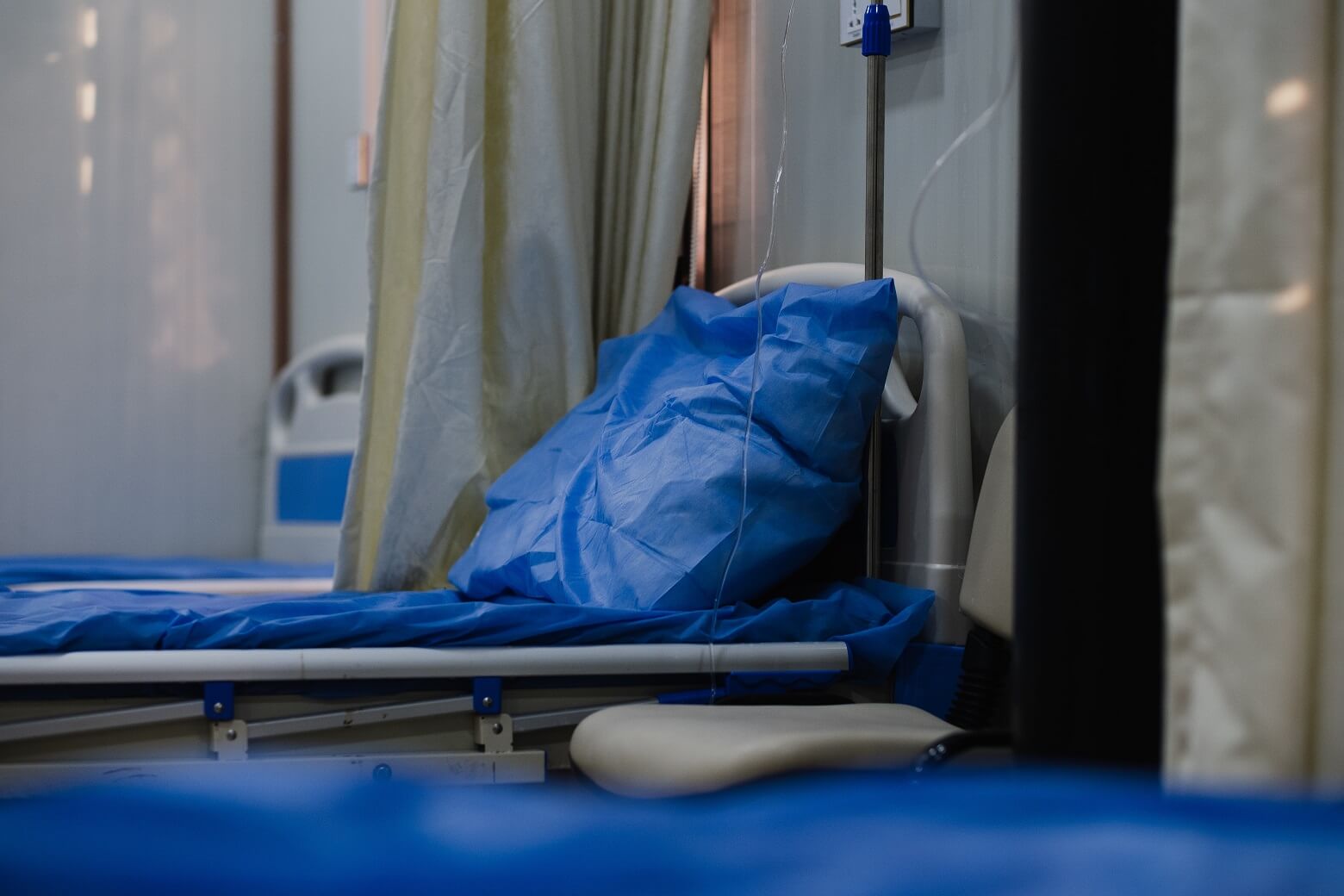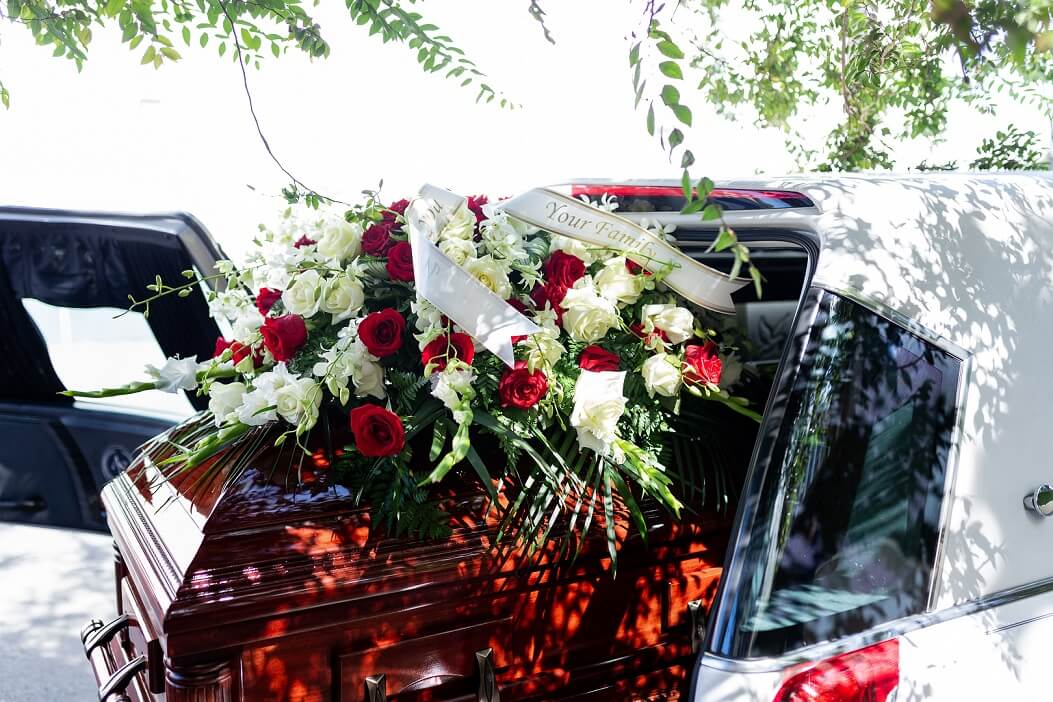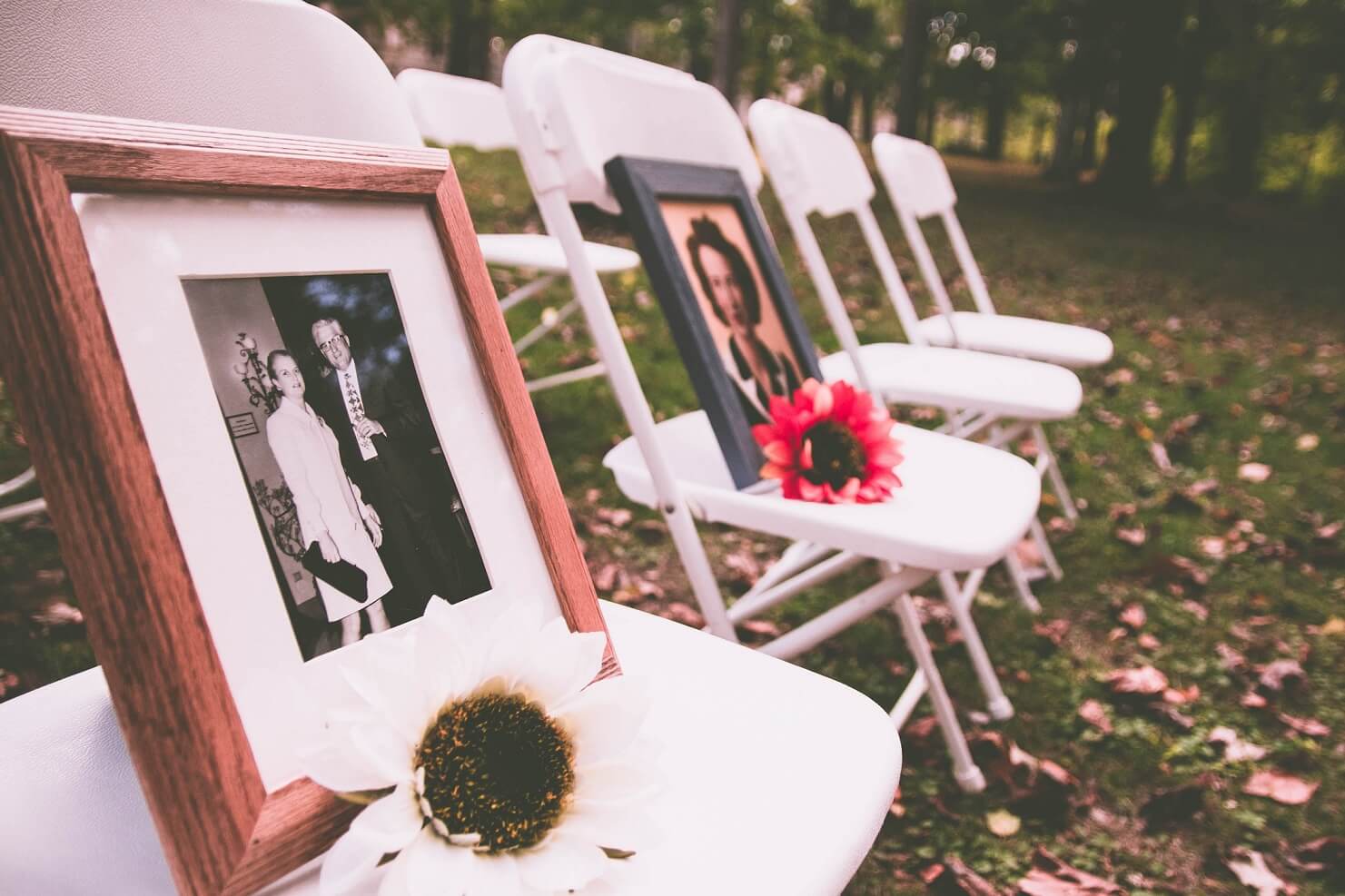
Your Funeral Planning Checklist
This checklist will guide you step by step through all that needs to be done following a death. You don’t need to use a funeral director and many people prefer the increased control and considerable savings that come from organising some or all of it yourself.
During the coronavirus pandemic, funeral planning is slightly different so please take those adjustments, which you can find in our coronavirus post, into consideration.
What to do immediately after a death

If your loved one has died at home
Contact a doctor or call NHS 111 to report the death.
If your loved one has died in a hospital
The hospital will report the death. You will need to make an appointment to collect documents, personal belongings and sign a release so that the body can be collected.
Check if the deceased had made any arrangements
Did they want to donate parts of their body for research? Have they pre-paid for a funeral plan? Have they registered particular wishes regarding a burial or cremation? Do they have a prepaid plot? Ultimately, you need to make decisions on their behalf but it is so much easier for you if you know their preferences.
If you wish to use a funeral home
A funeral home will store and prepare the deceased’s body for either burial or cremation. If you wish to use a funeral home, contact them and they will arrange for collection. You can find our list of funeral homes here.
If you’d like to take your loved one home
You don’t have to use a funeral home. Your loved one’s body will need to be stored appropriately until the funeral or cremation. Specialists can move the body in a private ambulance, but you have the option of removing the deceased yourself, as long as the body is suitably contained.
If you are having a Direct Cremation
The most simple and economical option, and one that is particularly suitable during COVID-19 when funerals are so limited, is direct cremation. The main companies are listed here and all charge around £1000. They will collect the deceased from the hospital or home and arrange for cremation without any ceremony, returning the ashes to you so that you can arrange ash scattering, an internment of the ashes or a memorial service later, when you are ready.
Look after yourself
This is an incredibly tough time and it’s important to take time to look after yourself. That includes allowing yourself to grieve. We have some advice for support for you and others affected here.
What to do in the days following a death

Let close friends and family know
Contact close friends and family of the deceased. This is usually done by a phone call. It is fine to ask someone to do this for you if you’ll find it too difficult. As soon as close family and friends have been told, announce the death more widely. Set up a Memorial Page and email a link to allow your wider circle of friends to share the news. It gives you control of the message that is communicated and gives friends an appropriate place to leave a message of support for you and the rest of the family.
Register the death
In order to register a death, you need to contact a register office. A relative should register the death, however, if this is not possible, it can be done by the person in charge of the funeral arrangements, someone who was present at the time of death, or an administrator from a hospital or care home. The register office will tell you what you need to do when you contact them. They may want to see some of the deceased’s documentation, such as a birth certificate, passport, NHS medical card or driving license. Once you have registered the death you’ll get a Certificate for Burial or Cremation and a Certificate of Registration of Death. You can buy extra death certificates, which will be needed for sorting out the person’s affairs.
Inform authorities and government services
There is a helpful ‘Tell Us Once’ service which enables you to report a death to multiple government organisations at once, saving you repeated phone calls and emails.
If the deceased had a will
Contact their solicitor so that the relevant legal proceedings can begin.
Decide if you want to view the deceased
Seeing the deceased for a final time before the funeral can be helpful in the grieving process but is a very personal choice. The funeral home will need to know if you are planning on any viewings so that the body can be prepared. The deceased will usually be in a coffin in a chapel of rest for the viewing.
Decide on the funeral and a burial or cremation

There are many different types of funeral, discuss the choices with family in case anyone has a strong opinion. Your loved one may have recorded their wishes on this website or in a will, so bear that in mind. As long as the owner gives prior permission you can bury the person who has died, or their ashes, in a private or a local authority cemetery, a religious burial ground, nature reserve, your own or other land,.
Speak to your religious leader about burial in a church graveyard
For a burial in a religious burial ground, speak to the religious leader about the options available. For Church of England burials you have the right to be buried if you lived or died within that parish. Many council owned cemeteries also have areas within them where the ground is consecrated.
For a non-religious burial
Contact your preferred private or council owned cemetery or natural burial ground. You can also bury a body, or the ashes, on private land but you will need to check that you comply with local regulations.
Choose how to mark their resting place
Choosing a burial, or burying ashes after a cremation, means there is a final resting place for you to visit. It is usual to mark this with a headstone or suitable grave marker. The least expensive burial option is in a common grave where more than one person is buried and as such you cannot have a grave marker or headstone. If you are using a family plot, a stone mason can engrave the existing headstone with their details.
Choose an urn
If your loved one has been cremated, you can either scatter, bury or keep their ashes. The crematorium will have a special container to store them in but you might prefer to choose an urn.
Choose a coffin or shroud
For both burial funerals and cremations, an appropriate coffin or shroud is required for the body. There is a huge selection, many helping reflect the personality or values of the deceased, and prices vary significantly.
Planning the funeral service

Even if you are using a funeral director to plan the funeral it is good to know what is involved. This ensures that you aren’t tempted to opt for unnecessary extras out of a sense of duty to the deceased, and that you know what choices are available.
Contact the relevant place of worship
If you are planning a religious service, contact the relevant place of worship and make a booking with them.
Book a crematorium
If you wish to have a cremation service, you will need to get in touch with a crematorium and make a booking with them.
Book a celebrant
If you are not having a church funeral and would like someone to spend time with you planning a personal service, book a celebrant to lead the service for you.
Book a hearse
It is traditional for the deceased to travel to the funeral in a hearse but there are alternatives including horse-drawn carriages and motorbike sidecars.
Book cars for mourners
It is traditional for close family to travel to the funeral in convoy immediately behind the deceased, usually in chauffeur driven black limousines. You can drive yourself, but remember that you may not be in a fit state to drive. The funeral cars will take you to the funeral but you’ll usually need to make other arrangements to get home afterwards.
Choose pallbearers
Pallbearers carry the coffin in and out of the church or crematorium. These pallbearers can be close friends and family members, or can be appointed by a funeral director.
Ask family or friends to read or speak at the service
Funeral services often feature readings and poems read by close friends or family members, as well as the eulogy. Find out who might like to speak, before deciding on the Order of Service.
Book any additional services
Think about any additional options that might be appropriate, such as a guard of honour or a 21-gun salute and book in plenty of time.
Select poems, readings, hymns or music
Choose a selection of readings, hymns or songs which were significant to the deceased, or which reflect their personality or life.
Think about music for the service
Most crematoriums have a sound system to allow you to play music and this can be the easiest option. Check what format is needed in advance. Live music adds something really special; you may have a close friend who can sing a solo or consider hiring a string quartet, harpist or soloist. For church funerals, if you are having hymns it is sensible to hire an organist and choir, either independently or through the church, to help mourners through the hymns. You’ll need to book any musicians ahead of time.
Decide on the final Order of Service
Once you know the readings, music or hymns, poems and any other elements of the wedding you’ll need to decide on the Order of Service. There is a fairly standard order for the different elements. Although you can change that order, following the usual pattern is more reassuring for mourners.
Order or design and print the Order of Service
Stationery companies will design and print the order of service, but you might prefer to delegate this task to a friend who can design and print it at home
Order flowers
Floral tributes are a traditional part of a funeral. Your florist will deliver the wreaths or tributes to you or the funeral home on the morning of the funeral. They are all placed on and around the coffin on the way to the funeral but usually just one remains on the coffin for the service.
Involving others

Let people know the funeral arrangements
Friends and family will want to know funeral arrangements at the earliest opportunity so they can make plans to be there. It is sensible to release the details more publicly so that those you didn’t know were close to the deceased can pay their respects.
Select a charity and set up a donation page
Family and friends may want to donate to a specific charity in the name of the deceased. This is often a charity that is relevant to a condition they suffered, to help find a cure or help others affected. You can have a collection at the service or wake but it’s increasingly popular to set up an online page.
Ask people to share their photos and memories
Photos and memories from family and friends of the deceased can be useful when writing a eulogy. They will also be comforting at a difficult time, so encourage them to share any memories on a memorial page before and after the funeral.
Planning a wake

A wake is the name of the social gathering associated with a funeral. They originated as a catholic tradition, held the day before the funeral. These days they are more likely to be held immediately after a funeral, with friends and relatives enjoying refreshments and raising a toast to the departed
Choose a venue to host the wake
Wakes are usually held in a venue close to the funeral location or at home. Some pubs and restaurants and hotels are happy for you to gather for a wake in their public bar but if you are serving food, making speeches or displaying photos it is better to book a more private event space.
Select music to play in the background
Set an appropriate and fitting atmosphere by choosing a selection of the deceased’s favourite songs as background music. Check the best way to play it at your chosen venue.
Create a memorial display
A memorial display usually with photos or items which were significant to the deceased, make a really good focal point for a wake. Speak to close relatives to involve them in putting the display together.
Order a cake
The ritual of gathering guests together to cut a cake gives you the opportunity to have any speeches or raise a toast to the deceased.
Think about drinks for a toast
Whether you are having a formal toast with champagne or sparkling wine or you’d like your guests to enjoy the deceased’s favourite tipple, you’ll need to make any special requests in advance. Other than drinks for a toast, if your wake is at a venue it is normal for guests to pay for their own drinks at the bar. For village halls or at home, you would usually need to supply free drinks.
Order food
It is normal practice to supply a light buffet, especially if family and friends have come a long way for the funeral. Venues such as pubs, hotels and restaurants will do the catering themselves but at others you’ll need to supply the food or use outside caterers. As it is impossible to know how many people are likely to come, some funeral caterers include options that can be frozen if they aren’t needed on the day.
Ask family and friends to help with the food
If you are catering the wake yourself it is fine to ask family and friends to help. Most supermarkets supply buffet platters although you may need to pre-order. You’ll need to supply drinks for your guests. Buy from a drinks merchant that offers “sale or return” if you don’t know how much to buy. Catering hire companies can supply all the crockery you’ll need and some supermarkets have glasses available to rent or borrow.
Planning a Celebration of Life

A celebration of life event can also be held straight after the funeral, but with more of an intention to celebrate the life of the deceased rather than mourn their death. Celebrations of life can also be held weeks or months after the funeral. We are expecting to see an increase in these events following the quiet, private funerals necessary during coronavirus.
Choose and book a venue
Depending on the numbers you are expecting, a celebration of life is typically held in a function room in a golf or sports club, a hotel, pub, restaurant or a local community centre or village hall.
Share memories
Photos or a video can be shared on boards or as a digital slide show during the celebration. Ask guests to contribute in advance. You may also want to ask guests to share a funny story or memory of their time with the deceased.
Arrange music and entertainment
You’ll want to create a joyous atmosphere for a celebration of life. Think about including some form of entertainment such as live music.
Book fireworks to end the evening
You'll want a clear and uplifting end to the evening so if your venue permits them, consider a firework display to bring the event to an end. If the deceased has been cremated, specialist firework companies can put their ashes into fireworks incorporated into the display.